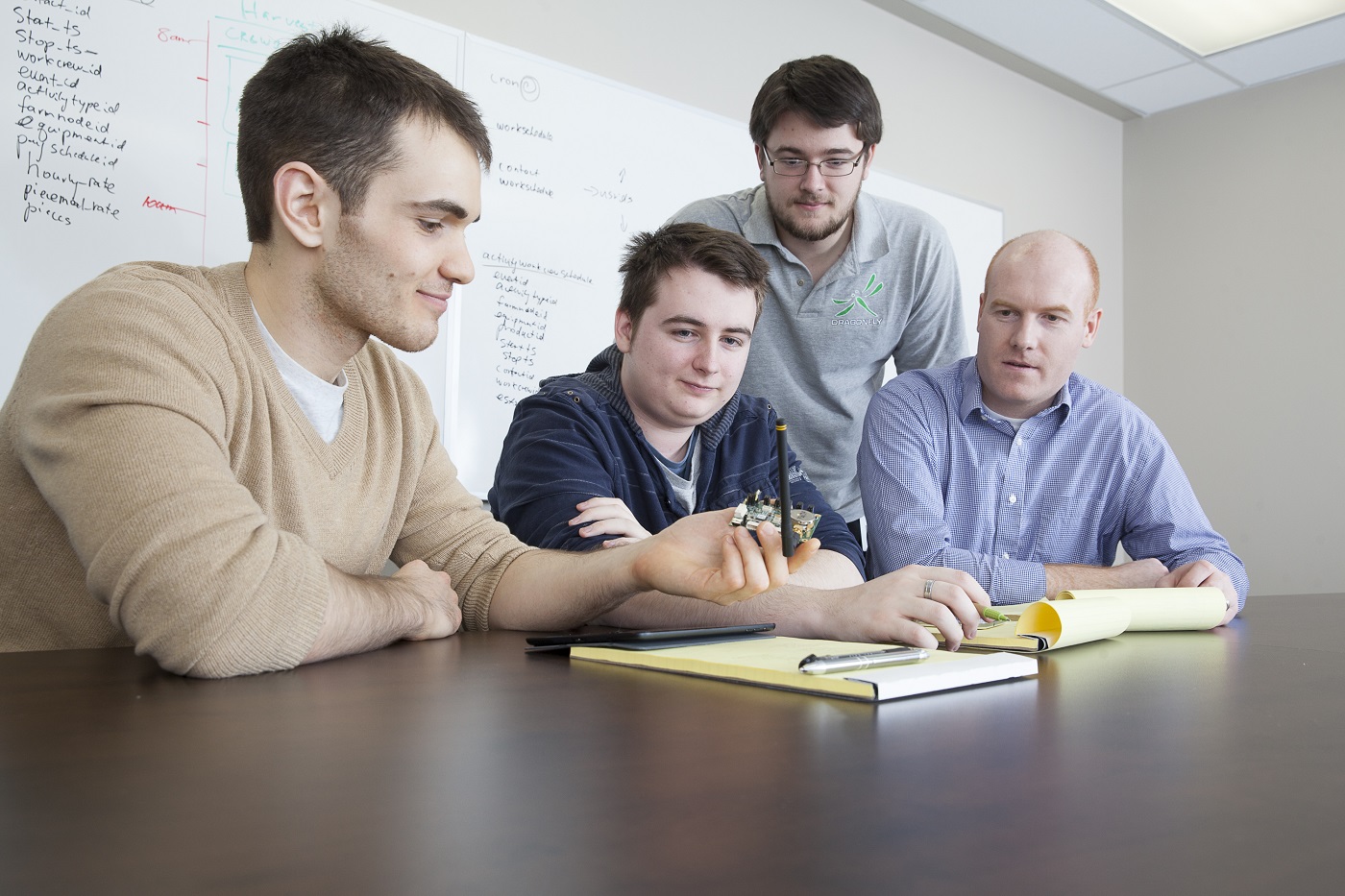
Ask Matthew Deir the CEO of Dragonfly Information Technology, located at Kingston’s Innovation Park about what makes the incubator special and he answers quickly.
“One of the things that is very important, but goes unmentioned,” he says, “is it has a kitchen.”
Not quite the answer you might expect. Dragonfly IT is a custom software company that creates products used locally, nationally and internationally, and is probably best known for a product called Fruit Tracker. This cloud-based program is intended to help fruit farmers manage their crops. “It helps them with when to pick, when to ship, and helps them with regulatory problems too – when they can spray safely, for example.” Fruit Tracker also monitors the grower’s weather and soil conditions, and lets them build up an elaborate geographic information system about their orchard or vineyard and then track their products to market. “We service the Ontario tender fruit growers, the Ontario apple growers and the grape growers,” says Deir, as well as customers outside the province. In 2014, Fruit Tracker software was awarded the Premier's Award for Agri-Food Innovation Excellence. Dragonfly has also developed what is termed “associational software,” programs that let organizations create databases to track their memberships and ecommerce sites for major corporations. Surely their needs go beyond kitchen space.
Deir is quick to expand on his answer. Dragonfly IT has received help from Launch Lab, the one-stop agency tasked with helping start ups at Innovation Park.
“They’ve given us market intelligence and helped us get funding for a client to develop a product,” he adds quickly.
“We’ve also started doing some sales coaching, offered as part of the InnovationXL program, which is quite interesting.” But for him, it all comes back to the kitchen – and to a reminder that, as much as technology and funding, incubators and start ups are about forging relationships. For Deir, who has been through, he says , “a few of these incubators,” you want a mix of public and private sector operations and places where people meet up – like the legendary coffee shops of Silicon Valley that have launched so many successful start-ups. This helps to create new opportunities
For Dragonfly IT, opportunity turned out to be sitting across the hall from them. Medizone, a medical start up under the direction of Dr. Michael E. Shannon, was working on a product intended to fight superbugs in hospitals. Called AscepticSure, it is a portable unit that can be placed in a sealed hospital room, then turned on, releasing a unique patented gas that kills superbugs.
The problem was running the unit – it kills more than superbugs so the operator can’t be in the room with it. The unit would need a remote operating system; something that Medizone didn’t have the expertise to create. By coincidence, someone Deir had met as part of an incubator ten years ago, had recently been hired as a salesman for Medizone in Maryland. He told Medizone that the solution to their problem was, literally, across the hall from their office. Dragonfly IT developed a system for running Ascepticure remotely, and the product is now moving into full production. On the basis of a ten-year-old connection and a shared hallway.
“It’s all about creating those networks and forging relationships,” says Deir. That’s why you need the kitchen. “You need a place where you can mingle, where you can run into people and strike up those interesting conversations.”
